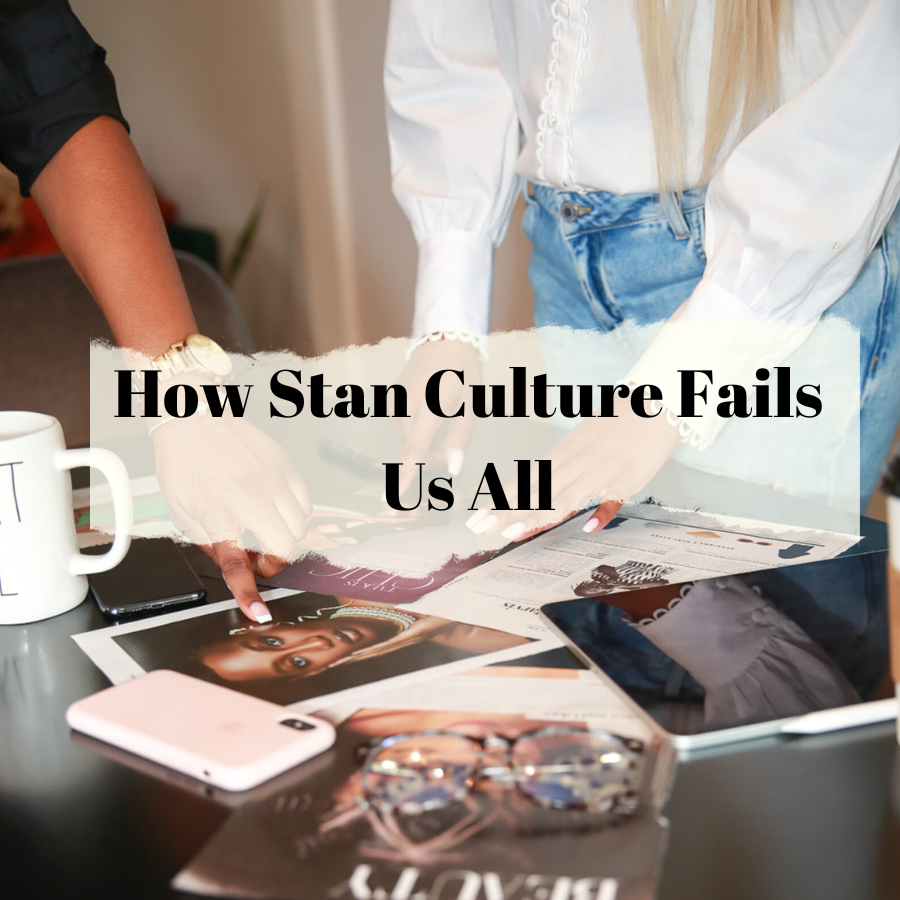In one form or another, “stan culture” has always existed. However, social media has not only given fans more access to celebrities than ever before, but it also grants them the chance to connect with other like-minded people from all over.
But what happens when these groups encourage harmful behavior, including doxing, stalking, and harassment? What makes stan culture extremely problematic is that it can incentivize disregarding people’s boundaries at a time when it’s especially important we uphold and respect them.
What is ‘Stan Culture’?
A portmanteau of “stalker” and “fan,” the term “stan” comes from the name of a 1999 single by Eminem. In the music video, a fictional fan named Stan becomes increasingly obsessed with the rapper to the point that he changes his appearance to resemble him and partakes in self-harm.
“I know you probably hear this every day, but I’m your biggest fan/” Stan says in the song. “My girlfriend’s jealous ’cause I talk about you 24/7. But she don’t know you like I know you Slim/no one does.”

As the music video progresses, Stan becomes increasingly unhinged when Eminem doesn’t respond to his letters. The video ends with Stan driving himself and his pregnant girlfriend off a cliff to drown. Stan dies before receiving a response letter from Eminem, who admonishes his obsessive behavior and urges him to seek mental health treatment.
Problems With Stan Culture
Stan culture thrives on social media, where fans are afforded anonymity. In these isolated, toxic groups, stans feel the need to one-up each other in an attempt to stand out and prove they are the most devoted.
A recent article from Insider details how prevalent this issue is. While the specific community isn’t shared, it does describe how a music critic faced an onslaught of insults and harassment for an article he had written — in which he recommended a rapper take a year off instead of producing a new album.
“He received emails and direct messages containing homophobic language, memes edited to show the artist holding a gun, and comments telling him to keep his mouth shut. On Instagram, fans directed one another to harass him on Twitter,” the article details.
The harassment continued, and it reached a tipping point when fans posted the writer’s family’s address.
In that case, stan culture harbored an environment where fans treated traumatizing outliers and naysayers as a sick game. But it’s no stretch that stan culture can facilitate violence which can be directed towards the individual at the center of their adoration.
In 2016, 22-year-old singer Christina Grimmie was fatally shot after performing in Orlando, Florida. “The Voice” standout was killed during an autograph signing by Kevin James Loibl, 27, who opened fire as the singer opened her arms to hug him.
Loibl fatally shot himself at the venue, and police never revealed a concrete motive. However, the gunman’s only friend told the Orlando Sentinel and cops about how he spoke about Grimmie “in religious terms.” The friend also explained how Loibl drastically changed his appearance and became vegan, presumably to somehow impress the singer, in addition to spending the bulk of his time watching her videos and scouring her social media.
Though Grimmie’s slaying may also include aspects of incel culture (which, honestly can and should be its own separate Educate & Activate post) it also shows how a form of entitlement led someone to believe they had the ultimate control over another person — and their life — due to celebrity status. And while it’s an extreme case, stan culture makes it acceptable for individuals to breach one’s boundaries under the guise of devotion.
So, What’s the Solution?
The panacea to toxic stan culture will likely come from within, as outside criticism is often dismissed as “hating.”
But, what is happening is more and more celebrities are using their agency to sever avenues that give fans complete access to them. Last year, Paramore frontwoman Hayley Williams announced she was stepping away from all of her personal social media accounts, which she often used to connect with fans.
She said, “Now I know for sure that my desire to move away from personal accounts is based on nothing more than my interest in keeping a boundary between a public and private life…and wanting to spend more time looking up and out, rather than down.”
Read More About Stan Culture and the Cult of Personality:
For Black Pop Stans, the Bare Minimum Is No Longer Enough
Why The Normalization of Stan Culture Is Unhealthy


